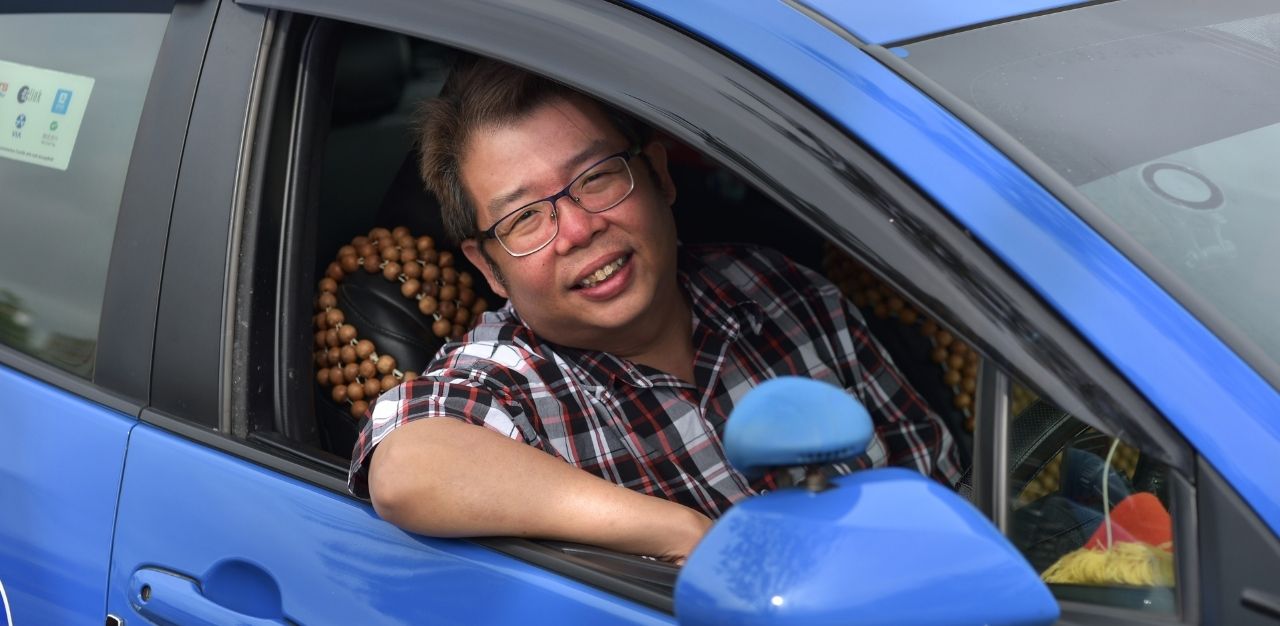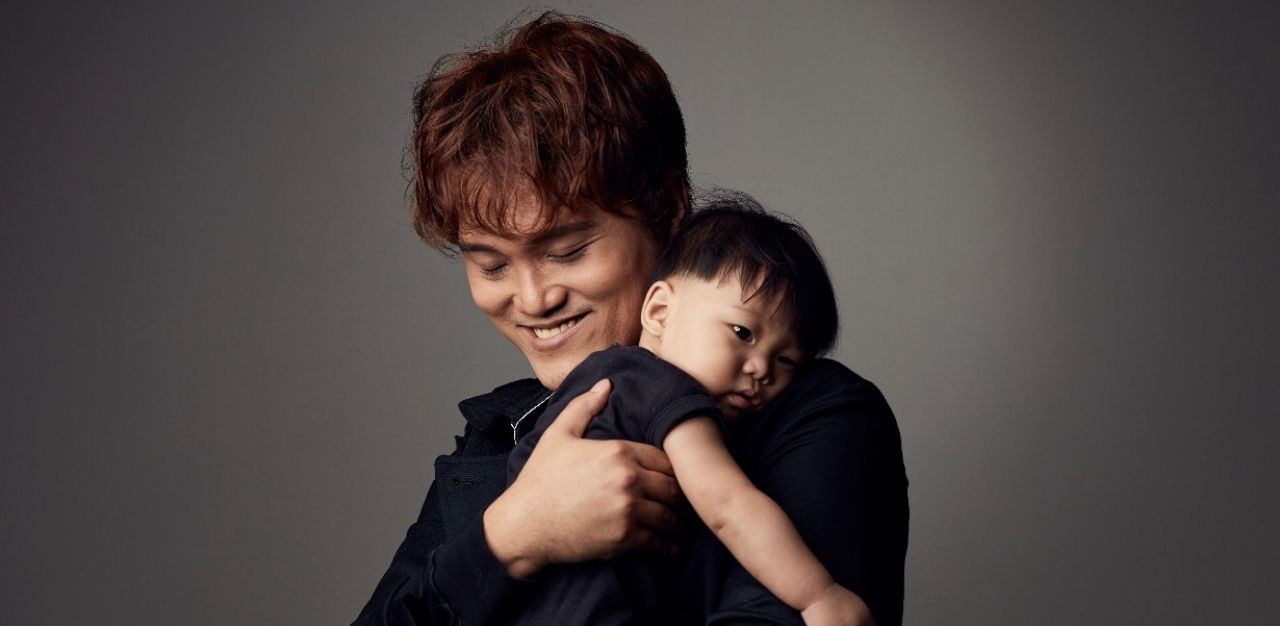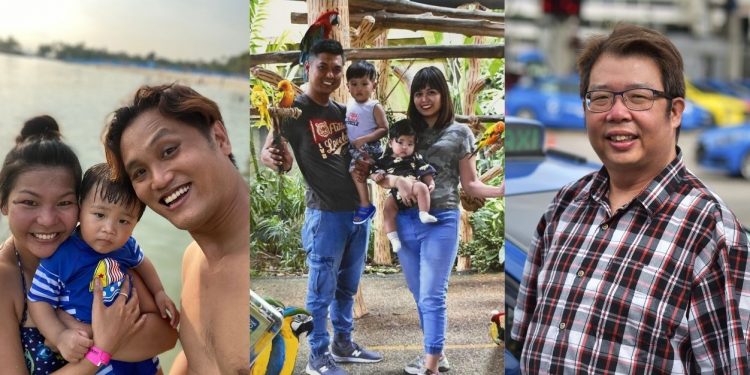With Father’s Day fast approaching (20 June), TheHomeGround Asia sits down with three fathers working in the gig economy in Singapore to understand the life of being your own boss and how it has helped, or challenged, their fatherhood journey.
Working in the gig economy can be an appealing prospect, with temptations of flexible hours, autonomy, and being your own boss. But with a pandemic on our shores, and mouths to feed, the cons can easily become amplified. For foodpanda rider Mufiya Mahmood, this is certainly the case.
The desire to be a responsible father

When Covid-19 hit, foodpanda rider Mr Mufiya found his income slashed by 30 per cent. As the sole breadwinner with two children under the age of two to support, he had little choice but to pull longer hours to make up for the lost income, clocking in 11 to 13 hours, six days a week.
Such is the reality of working in the gig economy, where your income is dependent on however much you work.
“I do have some concerns because I’m always outside, so I always try to stay safe as much as possible for them [his family],” he explains. “But I don’t have the luxury of staying home and working from home. It’s just the nature of the job.”
“It’s hard to strike a balance while juggling [work and fatherhood],” he adds. He reveals that oftentimes while he is out working, his children would send him video messages, asking him to go home.
“On my off day, I really spend time with them, but that cannot make up for the time loss in the six days… I feel the pinch, but no choice,” he shrugs.
Pre-pandemic, being a food delivery rider had allowed him to earn a decent keep, and when combined with his love for riding, it presented as a fairly appealing prospect. Furthermore, he appreciated the flexibility it came with. When he became a father nearly two years ago, he was able to shorten his shifts to make it home before his children went to bed, allowing him to spend time with them, while still making an income.
But with Covid-19 ongoing and no clear timeline on when the economy will recover, he is keenly aware of the instability that comes with working in the gig economy, and has since ventured into two businesses of his own; an upholstery-cleaning business, and another that provides moving services.
“I’m the only one working, so I need to make that extra sacrifice for my family,” he says. “That’s the number one key thing of being a father, responsibility.”
But he adds: “I’d prefer to have more time with them. When I’m doing food delivery, I need to work for at least seven hours. If I pivot more to my business, maybe I spend less time on work, and more time with them. That’s what I’m hoping for.”
This Father’s Day, Mr Mufiya does not have any special plans, but is looking forward to spending some time at home with his family.
A consistent and steadfast support

Speaking with ComfortDelGro cab driver Ho Wengwen Ivan over the phone, he comes across as a jolly but matter-of-factly man. A father to four children aged between 14 and 19, he says that he was “very, very happy” when he first learned that he was going to be a dad.
His pride is evident in the way he speaks about them; when asked what his happiest moment is as a dad, he says: “When you can see them growing up, then they obey and their results are good.”
As a cab driver, Mr Ho was spared the worst of the pandemic’s impact, with the support of ComfortDelGro’s waivers on cab rentals, and his wife’s regular income as a nurse. However, the nature of his job still sees him pulling in long hours daily, working 14- to 15-hour shifts, with rest days only when he feels too tired to drive, something that he continues to do in order to “earn as much as possible… to provide them [his family] with a good life.”
Long hours may mean that he is not home much to spend time with his kids, but the time he does have, he spends wisely.
Mr Ho’s day starts at 7am daily, and on schooling days, it begins with him sending his children to school – a precious window of time which he spends talking to them, and getting to know more about their days and what they do in school. On weekends, he also makes the effort to be home by six or seven in the evening to have dinner with his family.
“Then, we will discuss a lot of things together. What they’re good at, what their teachers have praised them in, then we will try to encourage them,” he shares.
He also makes full use of the flexibility he has as a cab driver, and readily takes half or full days off work if his children have performances or meet-the-parent sessions, in order to be present for them.
While he admits to being a strict father, he describes himself as being “caring to them when they need help.” And his love is clear in the advice he dispenses to them, and promises of steadfast support: “Study hard, and achieve what you want to do next time. Don’t worry about anything going wrong, just go ahead and do it. Anything, I will be there to support them.”
An ode of a father’s love

When Peter Huang first learned he was about to become a father, it sent him into a state of paranoia.
“I was constantly on Google, researching what to do, and being on forums,” he laughs. But despite the nerves of being a first-time parent, he says, “I had this very bizarre new sense of joy. There’s this sense of mission. It’s the most selfless feeling; it’s not for me, it’s for the kid, for the wife, and I just want to provide whatever help I can.”
Now a father to a 19-month-old son, Jacob, Mr Huang still remembers the first time he held his child in his arms like it was yesterday: “It’s humbling, it’s exciting, it’s delirium.”
The founder of MiCapella, a local acapella band, Mr Huang is a full-time musician and vocal percussionist, performing both with the band and as a solo artist. Before he had Jacob, Mr Huang spent much of his time travelling and touring with the band.
“I thought travelling and touring, staying up late for rehearsals, and doing gigs until 3am or 4am was tiring. But this fatherhood thing… ,” he trails off with a scoff, waving his hands in a gesture of dismissal.
He explains that as a musician, his schedule is typically planned ahead of time, allowing him to prepare himself mentally for potentially tiring days ahead, and schedule rest days if necessary.
“There’s no recovery day when it comes to fatherhood,” he rues. “You just push through. There’s nothing that will prepare you for it because you’re not in charge anymore. The kid’s needs become the driving force.”
Thankfully, tending to his child’s needs is made easier with his work as a full-time musician, as he had the flexibility to take time off on short notice. He also expressed his gratitude for government grants that entitled him to two weeks of paid paternity and childcare leave, even as a self-employed individual.
But the typical challenges with fatherhood all came to a head when the pandemic struck. As a musician, Mr Huang was hit especially hard, with approximately 90 per cent of his gigs and performances being cancelled. Initially, he worked as a courier driver to make some money, but that plan was soon derailed due to a medical condition, which required him to have a hip replacement surgery.
With a loss of income and medical bills to boot, Mr Huang and his wife were forced to burn through their savings, pushing him to consider possible alternatives that he had never thought about before.
“I have put more effort into pushing for myself to go into schools as an external instructor, which was not my primary thing in the past at all,” he shares.
Still, Mr Huang intends to stay the course in the music industry for now, as he believes that the vaccination roll-out and pent-up demand for live entertainment will usher in a quick bounceback in the music industry.
Most importantly, everything Mr Huang does now is with his son in mind: “[Having a child] changes my approach as a person, not just in work. I want him to be proud of me.”
He adds: “He’s going to have his own life and grow up [one day], and I just want to be part of his life, and I want him to like his old man and what his old man does.”
When asked to share a message to his child, his answer was simple and heartfelt. Tearing up, he says: “Daddy loves you, I always tell my kid that. I don’t know whether he understands it yet, but I want him to know that I love him, and that’s the number one thing. Everything else is secondary.”
Join the conversations on TheHomeGround Asia’s Facebook and Instagram, and get the latest updates via Telegram.














